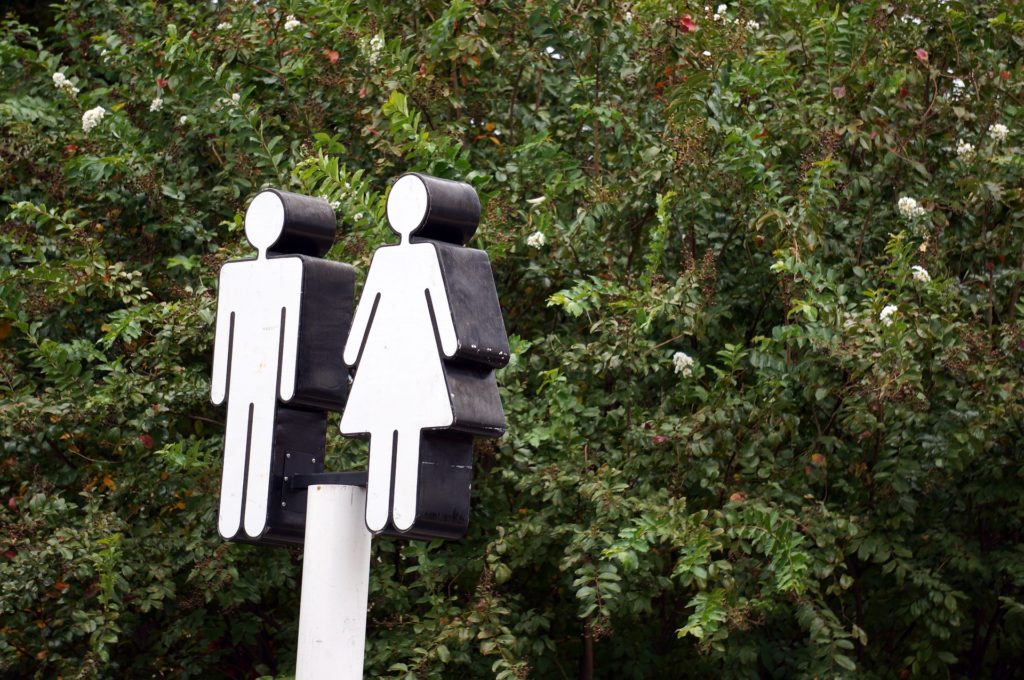 On November 30, 2018, students at Princeton University celebrated the third annual Menstruation Celebration. The event, coordinated by Princeton Students for Gender Equality and Princeton Students for Reproductive Justice, “aims to destigmatize conversation about periods,” according to Marissa Michaels of The Daily Princetonian.
On November 30, 2018, students at Princeton University celebrated the third annual Menstruation Celebration. The event, coordinated by Princeton Students for Gender Equality and Princeton Students for Reproductive Justice, “aims to destigmatize conversation about periods,” according to Marissa Michaels of The Daily Princetonian.
In her piece about the event, Michaels writes: “Signs at the celebration included one supporting the Menstrual Equity for All Act of 2017 (H.R. 972), one explaining menstruation, and another urging people to stop referring to menstruation as a women’s issue, since transgender and non-binary people get periods as well.”
Several states over, one of the oldest women’s colleges in the United States has issued a new policy regarding the acceptance of transgender and non-binary students.
Beginning in the fall of 2019, Stephens College in Columbia, Missouri will begin accepting biological men who identify as women, as well as biological women who identify as “non-binary.”
The college recently released an FAQ, which states in part:
Consistent with our culture’s expanding understanding of the definition of womanhood, the College’s admissions policy will recognize both sex and gender identity in its determination of a student’s eligibility for admission and enrollment.
…the College’s undergraduate residential women’s program will continue to admit and enroll students who are women and who live as women, just as it always has. It will also admit and enroll students who were not born female, but who identify and live as women; those students will need to provide legal documentation that they are legally women or that they are transitioning to female.
Because the College has expanded its definition of womanhood to include both sex and gender…
The College will also continue to admit and enroll students who were born female but who identify as non-binary, meaning students who experience their gender identity as falling outside the categories of man and woman.
The above are merely two examples of the way in which biological reality is being purposefully deconstructed in western society by a small but incredibly vocal and influential contingent of people.
This deconstruction has led to a women’s college accepting biological males who believe they are females, as well as biological females who don’t identify as either sex.
This deconstruction has caused a group of students at an Ivy League university to claim that menstruation, the monthly process wherein a woman’s uterine lining is expelled from her body, is not simply a female issue “since transgender and non-binary people get periods as well.”
Despite this social deconstruction, men who identify as women are still biologically male; transgender and non-binary individuals who menstruate are still biologically female; and regardless of thought or perception, nothing will change the immutable biological characteristics of those born with XX or XY chromosomes.
Although the mainstreaming of these flagrantly anti-scientific ideas may seem quite extreme, we must accept the possibility that this is only the beginning of a long-term campaign to dismantle reality as we know it, the consequences of which could be dire.
As we pull away from what we know to be true, it will become more and more difficult for us to commonly define what and who we are. In the absence of social definitions anchored in facts, we will drift further away from consensus and into multiple, different, and infinite directions.
Alone and without an anchor, we are more prone to harm ourselves physically, mentally, and socially in pursuit of comfort and stability that cannot be found because it doesn’t exist in the places in which we seek it. We may experience temporary relief, but it is almost always short-lived.
The deconstruction of biology is creating social and cultural chaos because it’s propelling us further away from the shared reality of what constitutes male and female.
Drifting away from a shared, central reality based in facts and reason, we lose sight of each other like a ship loses sight of the land from which it set sail. As time passes, and we communicate less frequently with individuals who do not share our perspective, and only with individuals who reinforce our own belief system, we begin to disassociate ideology from intent. As a result of this disassociation, the people espousing viewpoints with which we disagree, and with whom we previously interacted on a regular and civil basis, become less and less human, and instead turn into scantly drawn caricatures onto whom we can project our fear and anger.
This dissipation and dehumanization leads to the formation of self-segregated subcultures, the members of which have no desire or even ability to cope with outsiders. Without access to someone who can properly articulate an opposing perspective, these subcultures begin to develop a shared animosity toward anyone with whom they disagree. Unfortunately, the exchange of ideas and softening of aggression that comes from access to other perspectives is only possible if a culture has a shared understanding of base-level reality.
The breakdown of a shared reality regarding sex-related biological fact may only be the beginning of a greater and irreparable sociopolitical fracture in the western world.
via The Daily Wire






Recent Comments